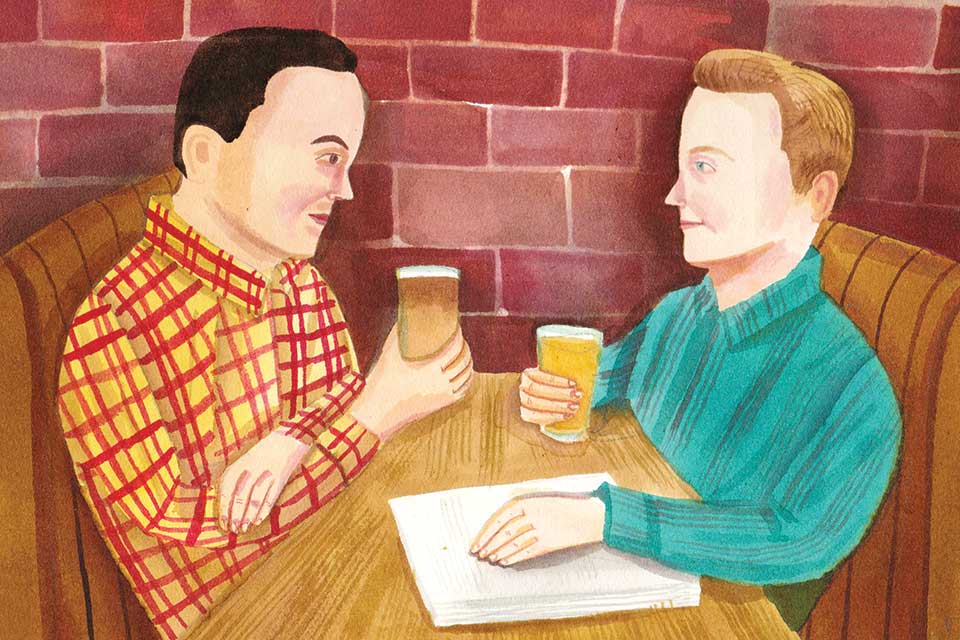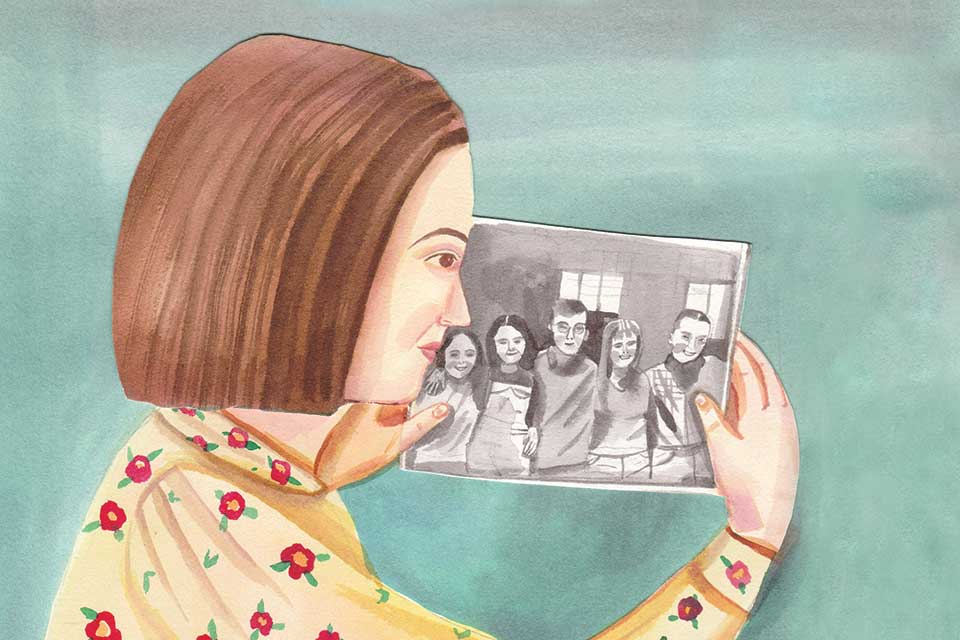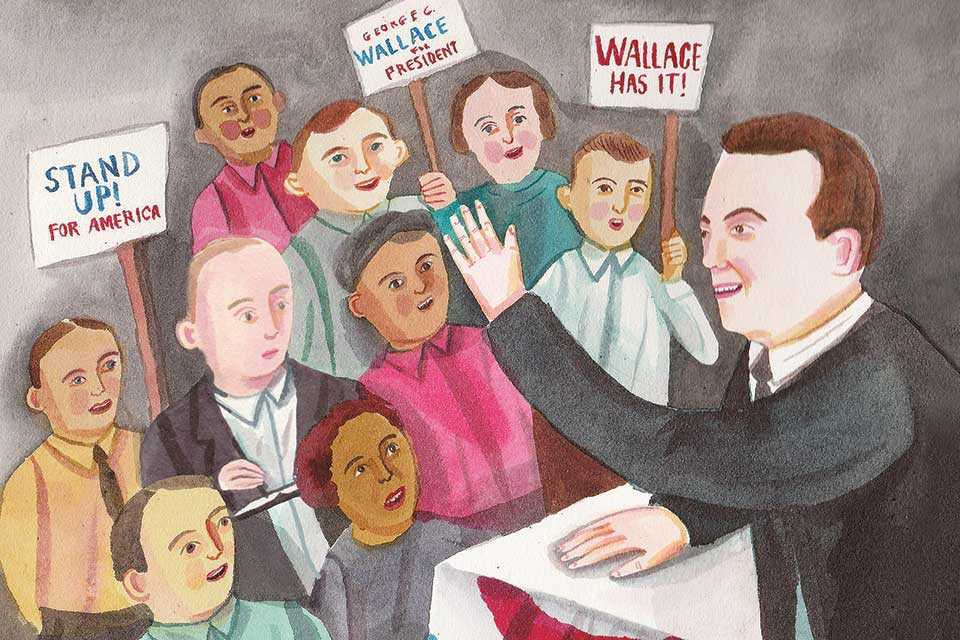A Real Writer
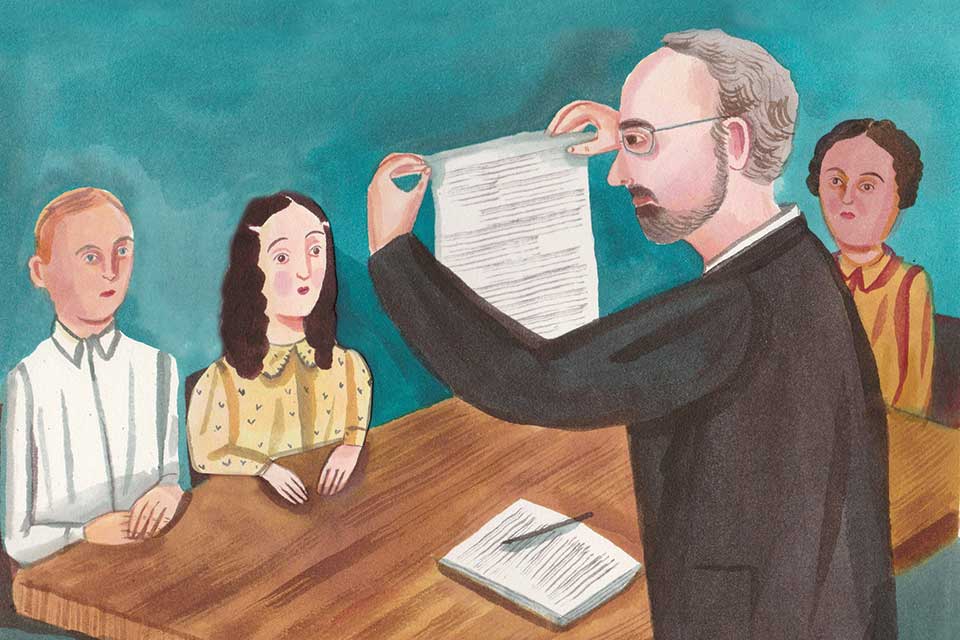
By Caroline Leavitt ’74
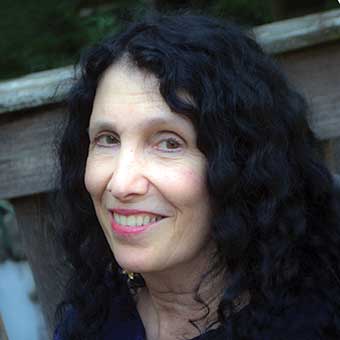
Caroline Leavitt (Photo Credit: Jeff Tamarkin)
Part of Character Development
It’s 1970, and I’m barely 18. I’ve been desperate to be a writer since I could grip a pencil. Now I’m a Brandeis first-year sitting around a wooden table, in an impossible-to-get-into writing class taught by an assistant professor of English, Alan Lelchuk. I’m convinced that he — with his buzzy new novel, “American Mischief,” and his friendship with Philip Roth — will turn me into a star. This is the beginning of everything wonderful, I think.
Only that doesn’t happen. When Professor Lelchuk comes in, he winks at us, then pulls my short story, about a girl jumping from a moving car, from a stack of papers. He holds it up by the corners and winces. “We can learn from reading garbage,” he says cheerfully. The other writers, shocked, stare down at their hands. My eyes sting.
“Nothing happens in this story,” he says. “I have no idea why this girl is jumping. What’s her goal? Her plan to get there?”
I start to cry. He coolly slides a Kleenex box across the table to me. “You’ll never be a real writer if you don’t work at it,” he says.
Stunned, I storm from the class. I’m so young, so impulsive. I don’t think, Well, I’ll work harder. Instead, I think, I’ll show you. On the spot, I make up a better story for myself than the humiliating one I’ve just lived. I’ll drop out of Brandeis! I’ll go to Paris; scribble in cafes; hobnob with French literati, who’ll be far better at honing my skills than a professor who makes me cry.
But Brandeis doesn’t make it easy to drop out. Before I can, I’m told, I have to talk to three English professors to see if they can dissuade “a bright young woman” like myself from throwing her education away.
Talking to the first two is a cakewalk. Do I realize how lucky I am to go to Brandeis, I’m asked. Why would I make this terrible mistake? I dismiss everything they say, my eyes stubbornly on the prize: Paris.
“I’m so young, so impulsive. I don’t think, Well, I’ll work harder. Instead, I think, I’ll show you.”
The last one I speak with is Alan Levitan, a campus legend, a man who sweeps around in a cape, who once lived in a dorm for a week to better understand students. A person who takes risks like that surely will understand me, I think.
To my glee, he nods approvingly when I mention my Paris plan. “What a great city,” he tells me. “You must have such wonderful, supportive parents!”
My stomach cramps. I haven’t told my folks yet because I know how important education is to them, how proud they are that I’m at Brandeis.
“How lucky, too, that you can afford those expensive Paris apartments,” he says.
I feel something snaking up my spine. Apartments are expensive? I’ve never looked for one. My parents don’t have money, and I have only meager savings of my own. “I can live outside the city,” I say. “And I can waitress.”
“Ah, you speak fluent French, then,” he says.
The only French I know is what I barely absorbed in high school. I see myself struggling to understand what customers are ordering, their growing irritation like a too-heavy winter coat.
“An hour commute on the Paris metro will feel like nothing,” he continues. “You can catch up on sleep.”
The knot in my throat tightens into a garrote. He leans forward, warm and concerned. “You look confused,” he says. “But you’re a writer, so let’s look at this as your story — two stories, really. Which version will give you your goal: more time to write. Is it as a student or a waitress?” He looks gently at me, leaving the discovery up to me.
I hear the voice of Professor Lelchuk again. What are the goals? What are the plans to get there? I have two hours before my next class to write, undisturbed. Tomorrow, my classes don’t begin until 3 p.m. Last week on campus, I lived richly on just $5. I feel that green “go” light of Paris growing fainter and fainter.
“Thank you,” I say finally, and get up. I don’t have to tell him what I’ve decided. I can tell by his kind face he knows.
I stay in school. I go back to my writing class. Professor Lelchuk still doesn’t like anything I write, not that day, not the next week. But I’m determined. I keep working and learning, pushing myself, until he says, “Better.”
My impulsiveness gives way to hard, careful, patient work. In 1982, my first novel, “Meeting Rozzy Halfway,” is published. It’s a sensation. I mail a copy to Professor Lelchuk with a note: “See, I did it.”
He writes back, “I always knew you’d figure it out.”
He isn’t just talking about my writing. Thanks to him and Professor Levitan, he’s talking about my life.
Caroline Leavitt is a New York Times bestselling author of 13 novels. The latest, “Days of Wonder,” will be published by Algonquin/Hachette in April.
